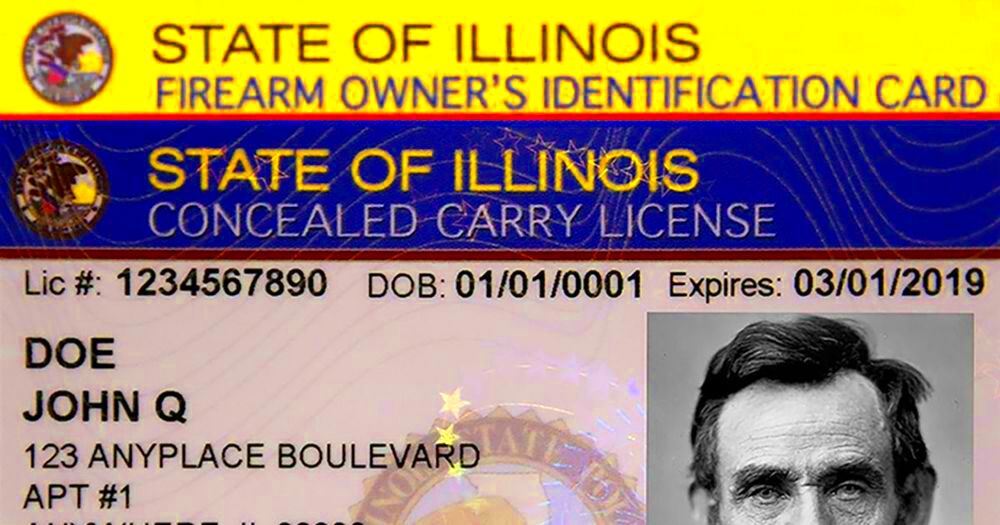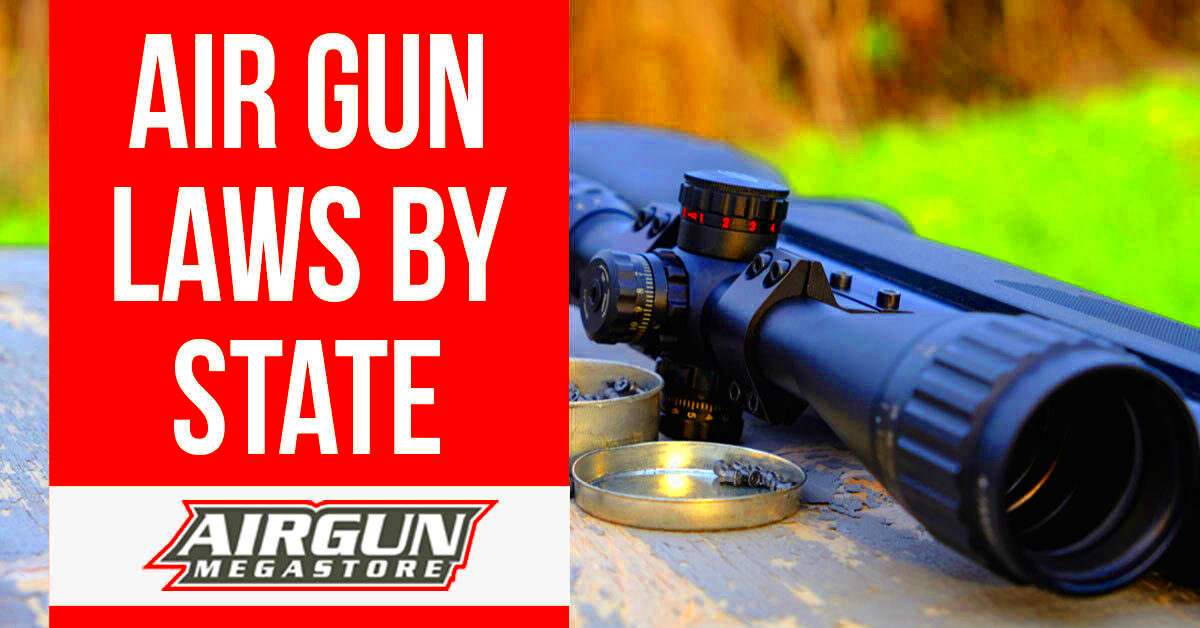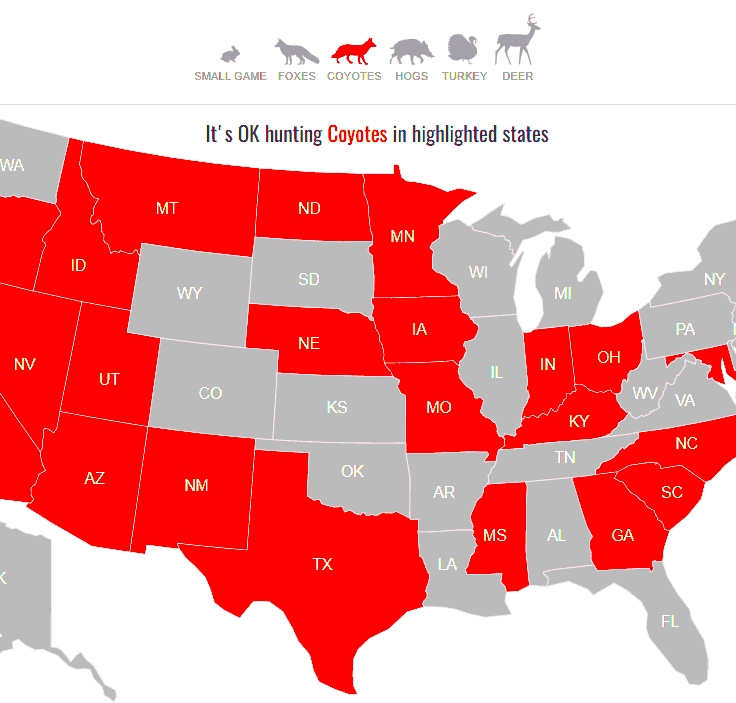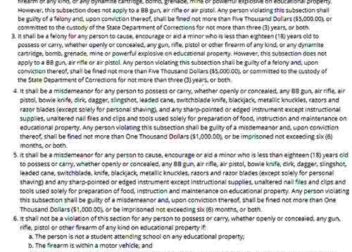Illinois Airgun Laws Explained
Navigating the laws regarding airguns in Illinois can be quite tricky. Whether you’re an experienced shooter or simply intrigued by these tools it’s crucial to grasp the regulations. While airguns may not pack a punch like conventional firearms they still have their own set of rules. In this article we’ll explore the details of Illinois airgun laws to clear up any uncertainties and provide guidance for those wanting to stay compliant with the law.
What Are Airguns?

Airguns, commonly known as air rifles or air pistols, are firearms that operate by using air or gas to shoot a projectile. In contrast to conventional guns that use gunpowder, airguns rely on pressure to launch pellets or BBs. This results in a quieter shooting experience and typically lower power level while still delivering notable precision and effectiveness.
Here are some common types of airguns:
- Pneumatic Airguns: These use a pump or pre-compressed air to fire the projectile.
- CO2 Airguns: These rely on carbon dioxide cartridges to create the necessary pressure.
- Spring-Piston Airguns: These use a spring mechanism to compress air and fire the projectile.
Different types of airguns come with their own distinct features and applications. CO2 airguns, for instance are favored for their user friendliness and minimal kickback, whereas spring piston variants are recognized for their sturdiness and strength. Knowing these distinctions can assist you in selecting the airgun that suits your requirements best, whether it’s for honing your marksmanship or dealing with unwanted pests.
Overview of Illinois Airgun Regulations

Illinois has rules in place regarding airgun usage that set it apart from other states. To steer clear of any legal troubles it’s crucial to familiarize yourself with these laws. Here’s a brief summary.
- Age Restrictions: In Illinois, there are restrictions on who can possess or use airguns based on age. Generally, individuals under 18 may need parental consent to use or own an airgun.
- Usage Locations: Airguns are subject to restrictions on where they can be used. For example, shooting an airgun in public spaces or near residential areas can lead to legal trouble. It’s crucial to use them only in designated areas or private property where shooting is permitted.
- Registration and Licensing: Unlike firearms, airguns typically do not require registration or a license in Illinois. However, it’s still wise to check local regulations as some municipalities may have additional requirements.
- Transporting Airguns: When transporting airguns, they should be unloaded and stored in a case to avoid misunderstandings or legal issues during interactions with law enforcement.
The goal of these rules is to promote the use of airguns and prevent any safety issues. Adhering to these guidelines allows you to indulge in your airgun pastime without facing any legal troubles.
Age Restrictions and Requirements
In Illinois the age restrictions for airguns hold significance. Based on my observations dealing with these regulations can be quite challenging similar to piecing together a jigsaw puzzle. The primary aim of these rules is to promote responsible usage of these devices among the youth.
Here’s what you need to know:
- Minimum Age: In Illinois, individuals under 18 are usually restricted from purchasing airguns without parental consent. This rule aims to prevent unsupervised access to potentially dangerous items.
- Parental Consent: If you’re under 18 and want to own an airgun, you’ll often need a parent or guardian to sign off on your purchase. This consent ensures that there’s adult oversight and guidance on safe usage.
- Supervision Requirements: Even with parental consent, younger users should always be supervised when using airguns. This supervision is not just a legal requirement but a sensible precaution to prevent accidents.
Having witnessed young shooters develop under the right mentorship I can vouch for the impact of responsible oversight. It’s all about fostering a setting that prioritizes safety while nurturing skills with thoughtfulness and focus.
Where You Can and Cannot Use Airguns
Understanding the legal places to use airguns in Illinois is crucial. Many people tend to overlook this aspect of airgun ownership, but it can save you from a lot of trouble. Based on my personal experience sticking to spots not only keeps you on the right side of the law but also prioritizes safety for everyone involved.
Here’s a brief guide:
- Public Spaces: Using airguns in public parks or streets is generally prohibited. These areas are often too crowded and pose risks of accidental injury or property damage.
- Private Property: You can use airguns on private property with the owner’s permission. Ensure that your activities do not endanger neighbors or violate local ordinances.
- Designated Shooting Ranges: The safest and most legal option is to use airguns at designated shooting ranges. These facilities are equipped to handle the specific needs and safety concerns associated with airgun use.
Based on my observations I believe that utilizing airguns in settings such as shooting ranges not only improves precision but also prioritizes safety. It benefits both the shooter and the community as a whole.
Registration and Licensing Rules
In Illinois one of the easier things about owning an airgun is that there arent strict rules for registering or getting a license. Airgun fans usually like this simplicity. Personally I think that although it’s easy to own an airgun without too much red tape it’s still crucial to adhere to safety and legal protocols.
Here’s what you should know:
- No Statewide Registration: Illinois does not require airguns to be registered at the state level. This is different from firearms, which typically do have registration requirements.
- Local Regulations: While the state doesn’t mandate registration, some localities may have their own rules. It’s wise to check with local authorities or community regulations to ensure compliance.
- No Special Licensing: Airguns generally do not require a special license. However, responsible ownership and adherence to safety practices remain crucial.
From my perspective not having to deal with paperwork makes it easier to own an airgun. However it also means that the owner has to take charge of following safety measures and abiding by local regulations. Its a delicate between enjoying freedom and being responsible, for staying updated on the rules is crucial.
Penalties for Violating Airgun Laws
It’s essential for every airgun owner in Illinois to grasp the implications of violating airgun regulations. Based on my experiences with issues I’ve come to realize that being aware of the rules can help you avoid expensive blunders and keep you on the right side of the law.
If you break the rules regarding airguns you could face different consequences such as.
- Fines: Depending on the nature of the violation, fines can range from a few hundred to several thousand dollars. For instance, using an airgun in a prohibited area could result in a hefty fine.
- Confiscation of Equipment: Authorities may seize your airgun if it’s used improperly or in violation of local laws. This not only means losing your equipment but can also be an inconvenience.
- Criminal Charges: In severe cases, particularly if an airgun is used in a threatening manner or causes harm, you might face criminal charges. This can lead to a permanent record and other legal troubles.
Based on my own experiences I have witnessed how a misunderstanding or being unaware of something can result in unexpected outcomes. Keeping yourself informed about the rules and making sure to follow them can prevent a lot of issues down the line.
Key Differences Between Airguns and Firearms
While airguns and firearms may appear similar to some, they actually differ in their functioning and regulation. Having experience with both I can offer some perspectives on these distinctions that could help clarify any misconceptions.
Here’s a comparative look:
| Aspect | Airguns | Firearms |
|---|---|---|
| Power Source | Compressed air, CO2, or a spring mechanism | Gunpowder or other explosive propellants |
| Noise Level | Generally quieter | Louder due to combustion |
| Legal Requirements | Less stringent, no registration required | More stringent, often require registration and licensing |
| Usage Regulations | Subject to local laws, but generally more lenient | Strict regulations and restrictions apply |
I believe that recognizing these nuances not only aids in using language correctly but also ensures adherence to legal norms. Whether you’re an avid fan or simply intrigued by the subject matter grasping these differences is crucial.
Frequently Asked Questions
When it comes to regulations surrounding airguns individuals tend to have numerous inquiries. Based on my personal encounters and typical concerns here are some of the questions that are commonly asked regarding airguns in Illinois.
- Can I use an airgun in my backyard? It depends on local ordinances. In many areas, using an airgun in your backyard is allowed, but you should always check local laws to avoid any issues.
- Do I need a permit for an airgun in Illinois? No, Illinois does not require a permit for owning or using an airgun at the state level. However, local regulations might differ.
- What should I do if I’m stopped by the police while carrying an airgun? Always ensure your airgun is unloaded and stored in a case. Inform the officer calmly and follow their instructions to avoid any misunderstandings.
- Are there any specific safety courses for airgun users? While not mandatory, safety courses are highly recommended. They help you understand proper handling and usage, making shooting a more enjoyable and safe experience.
These frequently asked questions are here to tackle questions and offer some insight. In my view keeping yourself updated and ready can greatly impact your overall satisfaction with your airgun experience.
Conclusion
If you’re thinking about getting an airgun in Illinois it’s crucial to understand the laws surrounding it. Based on my experience navigating these rules I can tell you that staying updated and following the guidelines is essential for a smooth experience. Keep in mind that while airguns may seem less daunting than traditional firearms they still come with their own set of responsibilities and regulations. By adhering to age restrictions knowing where you can use your airgun and being aware of the legal consequences of any breaches you can ensure that your enjoyment of airgun activities remains safe and within the boundaries. In essence being a responsible airgun owner not keeps you on the side of the law but also creates a positive atmosphere for fellow enthusiasts.


